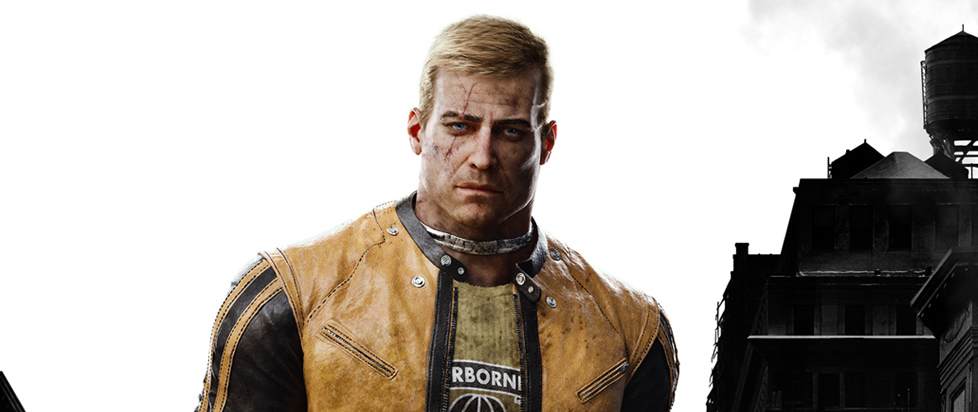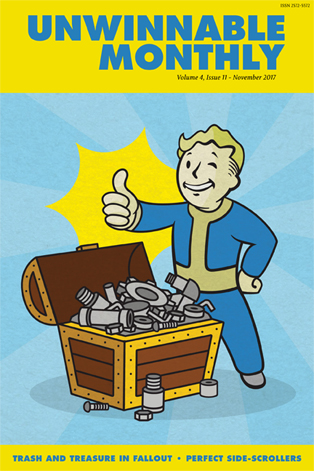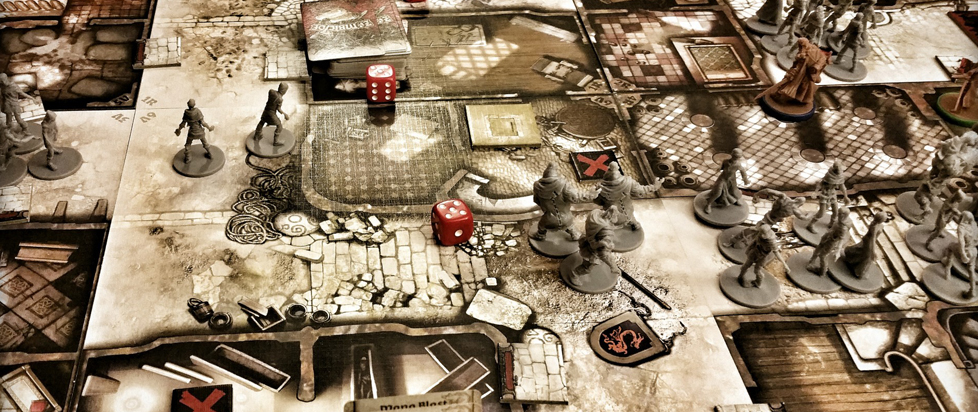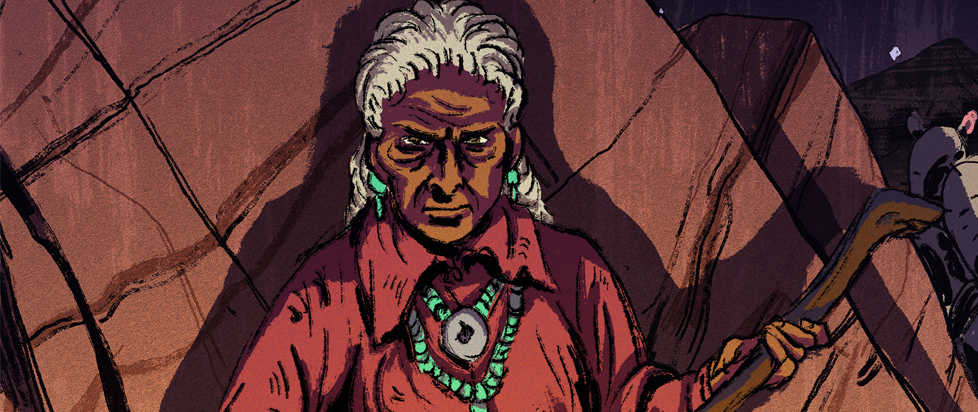
The Pain is in the Remembering
 This column is a reprint from Unwinnable Monthly #97. If you like what you see, grab the magazine for less than ten dollars, or subscribe and get all future magazines for half price.
This column is a reprint from Unwinnable Monthly #97. If you like what you see, grab the magazine for less than ten dollars, or subscribe and get all future magazines for half price.
———
A repository for games and ennui.
———
I remember being young, sometime in the early 80s, watching TV with my sister. She is older than I am by 14 years, so I ended up being in her care quite a bit. My dad had left and we were on food stamps while my mom scraped everything she could together to keep food on the table and the power on.
I don’t have a lot of childhood memories, but I remember watching this made-for-TV movie. In the movie, there’s a little girl with a basket of kittens and this guy adopts one. The movie then implied he killed it. In retrospect, I understand it was trying to show he was crazy and uncaring, but to little Jason, this was upsetting. I couldn’t understand why someone would harm something innocent. Where was the mom to stop this from happening? How can this person exist? I’ve never mentioned that night to my sister – I doubt she’d remember it – but it has stuck with me for years and, if she knew, she would regret it.
Years later, when I was around 12 years old, we rented a home in a rural area. The people that rented the home to us raised some livestock. They would pay me to go feed the pigs. A twisty little creek ran by the house and people had laid little bridges over all the twists, turns and branches. Later that summer, we had a flash flood. The area around our house became a lake and all of the animals got out. The pigs had escaped but then ended up drowning. After a few days, the owners of the house brought out some bags of lime. My stepdad volunteered me for the job. He didn’t like me, thought I was a “sissy.”
I had taken care of these animals for a few months at this point and had grown attached. I hefted the heavy bag of lime onto my shoulders and began picking my way through the debris and slowly balancing across slightly misplaced planks and bridges. The animals had been dead for a few days and the smell was difficult. The air hung moistly around me and the bodies. I undid the bag and covered the poor creatures with lime. I wouldn’t cry about it until much later.
These moments have haunted me for years. There are more, but these two are stark in my mind and I can talk about them. Not every memory is so easy. As a child, I didn’t know where to put that sadness and anger. As an adult, I can parse those feelings and appropriately handle them. That’s why I can play videogames and watch entertainment that doesn’t always show the kinder side of humanity. That’s why I didn’t expect my reaction to Wolfenstein II: The New Colossus.
It’s not what you think. If you haven’t played the game, mostly you’ll know that it’s alternate history and you kill a lot of Nazis. I’m not squeamish when it comes to ending a Nazi. I’ve made a career of talking about and participating in physical videogame violence. I was taken by surprise by violence of a different kind – emotional violence. The part of the game that made me stop and think was before you ever fire a shot.
Wolfenstein II follows William “B. J.” Blazkowicz as he fights the Nazi regime that dropped an A-bomb on New York City and has taken over the West. The game has an interesting and fun cast, but one of the major catalysts for the story movement is B. J. himself. He keeps a running dialog with friends and family as he tries to keep it together long enough to complete his mission. Not all of it lands, but enough of it does to give some clarity to the character.
When we join B. J., he is falling in and out of consciousness after being rescued by his comrades. During this reminiscing, we spend time with a young William and his mother. These scenes take place in Texas before World War II and are not easy to watch.
We see B.J. in his room, mostly, after his father beat him. B. J. and a young African American girl are friends and, at one point, kissed. His mother tries to comfort Billy, but his dad comes home and it doesn’t go well. After a shouting match, he beats and chokes you, in B. J.’s skin, and your mother (you get to control a young B. J. to throw things at your father).
After a few random scenes from the war, we rejoin B. J. as his dad is lashing his hands to a sawhorse. He ties your dog in front of you and places a loaded shotgun in your hands, pointed at your dog. As he does this, he goes on about how if he can’t make you strong, he’s going to make it so you can take the beatings. The game then forces you to shoot. You can opt to miss, but your father just berates you and shoots the dog himself.
Billy’s childhood is one of the main themes of Wolfenstein II. It works. Most of us have memories that shaped us and explain our underlying motivations. B. J.’s memories, and his relationship with his father, do more than just set the stage for the coming story. They define the reason B. J. keeps going.
B.J. is a man trapped by his past, stuck between a world of ghosts and flesh. Everything before he met Anya is dead and gone. Everything after seems out of reach. He lives in a world in which he can’t imagine a happy ending. His only desire is to keep it together long enough to try to secure some manner of peace and security for Anya and his unborn children. Personal hope cannot exist.
He’s the agent of revenge on those who made us powerless. He’s the dark, disturbing fantasy that lives deep in all of us who have been neglected or abused. It’s a power trip that we all envy, but that power has a serious trade-off, which The New Colossus isn’t afraid to show.
The world toughens you up, one way or another. Over the years, I became an adult and, with that change, came freedom and responsibility, along with an understanding of the world. I’m not that scared kid any more, but he’s still inside me. We work together to try to make sense of things. He reminds me that everyone can be afraid and confused. He makes me think about the kind of memories I leave for those around me.
Maybe that’s all you can do.
———
Jason McMaster is a writer and editor with a lifelong passion for games. When he isn’t working on Unwinnable, he’s either on his PC or playing a board game. Follow him on Twitter @mcmaster




